Wow, what a summer! To witness the joy on teenagers’ faces as they reunited with and hugged friends, formed close bonds with new peers, reveled in face-to-face connections, spent two to three weeks in the beautiful Blue Ridge Mountains, and had the most fun they’ve had all year—all in the middle of a pandemic… This year has been the most rewarding and fulfilling summer we have ever had.
And now it’s on to 2021! While no one knows what the next year will bring—and we certainly hope we’ll be able to return to normal and operate our trips out west—we believe Adventure Treks will fill more quickly than ever due to increased demand.
Our enrollment schedule for 2021 will be slightly different from previous years, so please read the following carefully.
Multiple 2021 enrollment dates
*Monday, August 24: Priority enrollment opens for students who were originally signed up for 2020 Alaska Expedition and
-
- 1) instead attended a Blue Ridge Expedition trip or
- 2) who transferred tuition forward to 2021.
*Wednesday, August 26: Priority enrollment opens for all other students who attended a 2020 Blue Ridge trip (this includes Discovery, Adventure, and Ultimate) and/or those who transferred tuition or deposits forward to 2021.
*Wednesday, September 2: General enrollment opens for non-returning students and new students (including Camp Pinnacle campers).
Why are there different priority enrollment dates?
As next summer may be the last Adventure Treks year for many of our students who couldn’t attend Alaska this year, we feel that it’s important to give those students who were signed up for Alaska Expedition in 2020 the first opportunity to sign back up for Alaska 2021.
On Wednesday, August 26, any remaining spots we have in Alaska will become available to other priority enrollment students who are age-eligible (those who are now entering the 11th and 12th grades).
However, we want to stress how highly we recommend attending California Challenge or Ultimate Northwest before Alaska—as they are important “stepping stone” or preparation trips for the longer and more strenuous Alaska Expedition.
How will we re-enroll for 2021?
Returning families: Log in to your CampInTouch account starting Monday, August 24, to submit the online student application.
New and Camp Pinnacle families: Click the Enroll Now button to create a new CampInTouch account and submit the online student application. (Camp Pinnacle families: While we use the same database, your CP login won’t work in the AT database, so you’ll need to set up a new password and account through AT.)
Updated 2021 schedule
The tentative schedule for 2021 has been updated online. Because COVID-19 threw everything into a tailspin and students could only attend Blue Ridge trips instead of their planned 2020 adventures, the 2021 schedule should allow students to be able to attend the trips they were originally signed up for in 2020.
We don’t want students to miss out on the locations and activities they were looking forward to this summer, so we highly recommend re-enrolling on the same trip. The new schedule should also allow trip groups to stay together, which we know is very important to returning students.
Tuition credits and discounts for 2021
Early enrollment discounts
Families who enroll for 2021 before September 30, 2020, will receive an early enrollment discount. Below are the details:
- Families who could not attend a 2020 Blue Ridge trip and instead pushed their full tuition payment forward to 2021 will receive 2020 pricing (an immediate $200 discount), plus any other early enrollment discounts they received in 2020.
- Families who attended a 2020 Blue Ridge trip will receive a $100 early enrollment discount if they sign up by September 30.
- Families who could not attend a 2020 Blue Ridge trip and instead pushed their partial tuition payment or deposit payment forward to 2021 will receive a $100 early enrollment discount if they sign up by September 30.
- Families who could not attend a 2020 Blue Ridge trip, Camp Pinnacle families, and new families will receive a $100 early enrollment discount if they sign up by September 30.
Tuition credits
For families who have transferred full or partial payments forward, please note that the application will still ask how you’d like to pay the deposit; if you have a credit for 2021, please disregard this (it’s not a function we can turn off, and we process payments manually anyway). All credits will automatically transfer to 2021 and be adjusted after we process new applications.
We know this might be confusing, and we thank you in advance for your patience and understanding as we continue to navigate these challenging times. Our goal, as always, is to create the best summer experiences possible for our students and provide incredible customer service.
We will be closing down the last of our summer trips this week and may not be able to answer all calls in a timely manner. We also anticipate very high call volume, so if you don’t reach us by phone at 888-954-5555, please leave a message or email us.

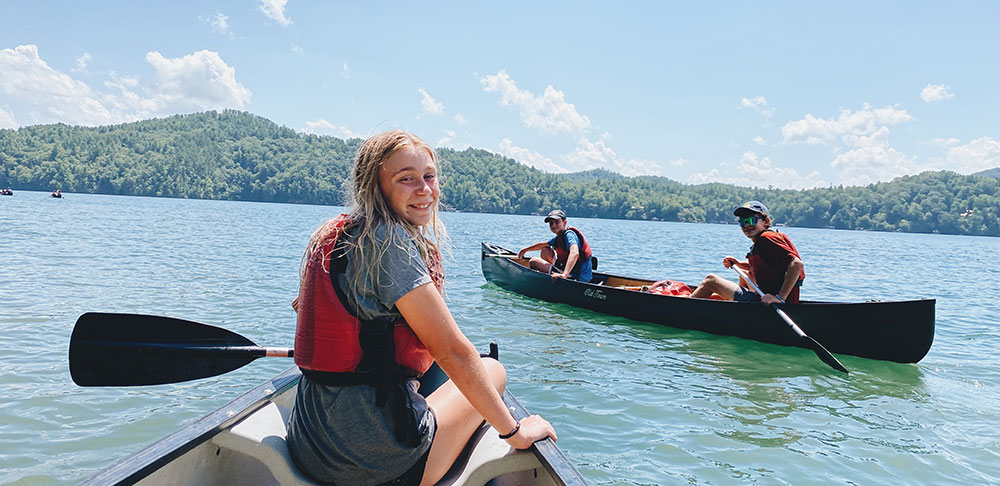
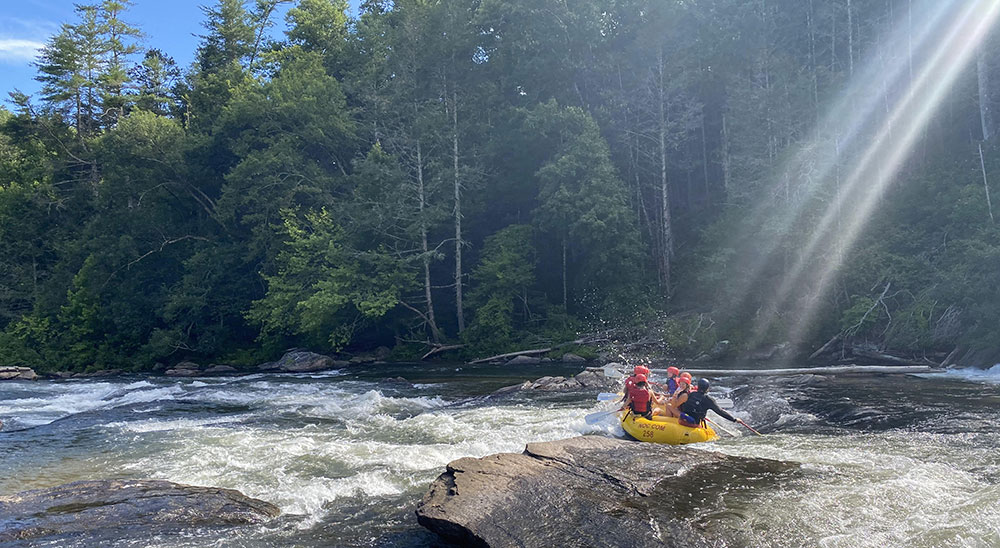

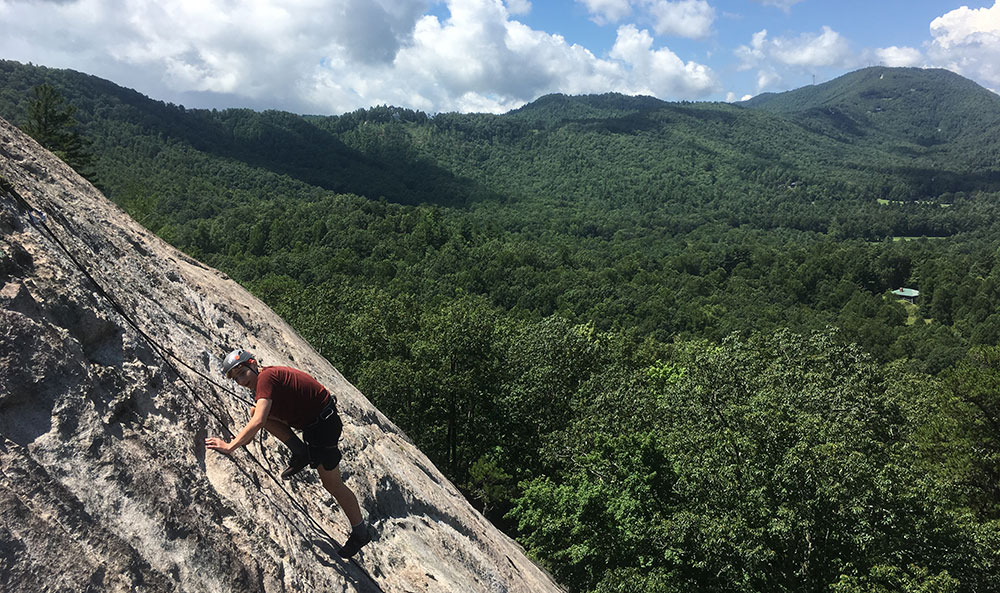
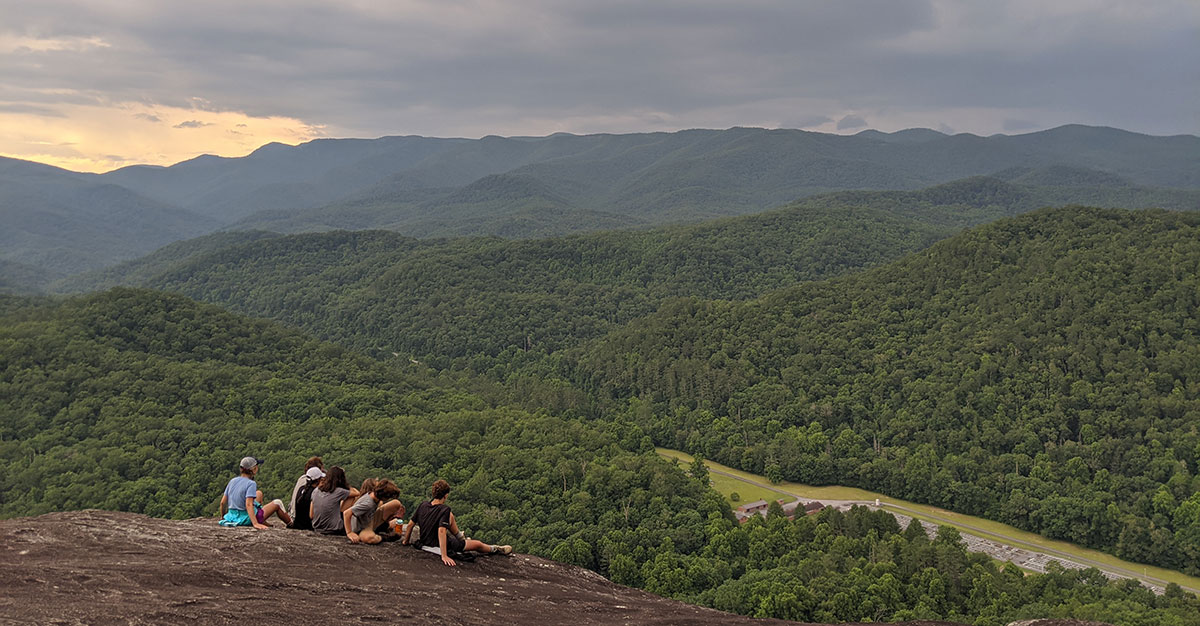 Each year, we feel that the benefits of the Adventure Treks experience become more important. The reason is simple: technology. (It’s more heartbreakingly true this year, when students have been glued to their screens for online hangouts and schooling.) This might not make sense initially. How does attending a camp devoid of technology help a child succeed in a world defined by it?
Each year, we feel that the benefits of the Adventure Treks experience become more important. The reason is simple: technology. (It’s more heartbreakingly true this year, when students have been glued to their screens for online hangouts and schooling.) This might not make sense initially. How does attending a camp devoid of technology help a child succeed in a world defined by it?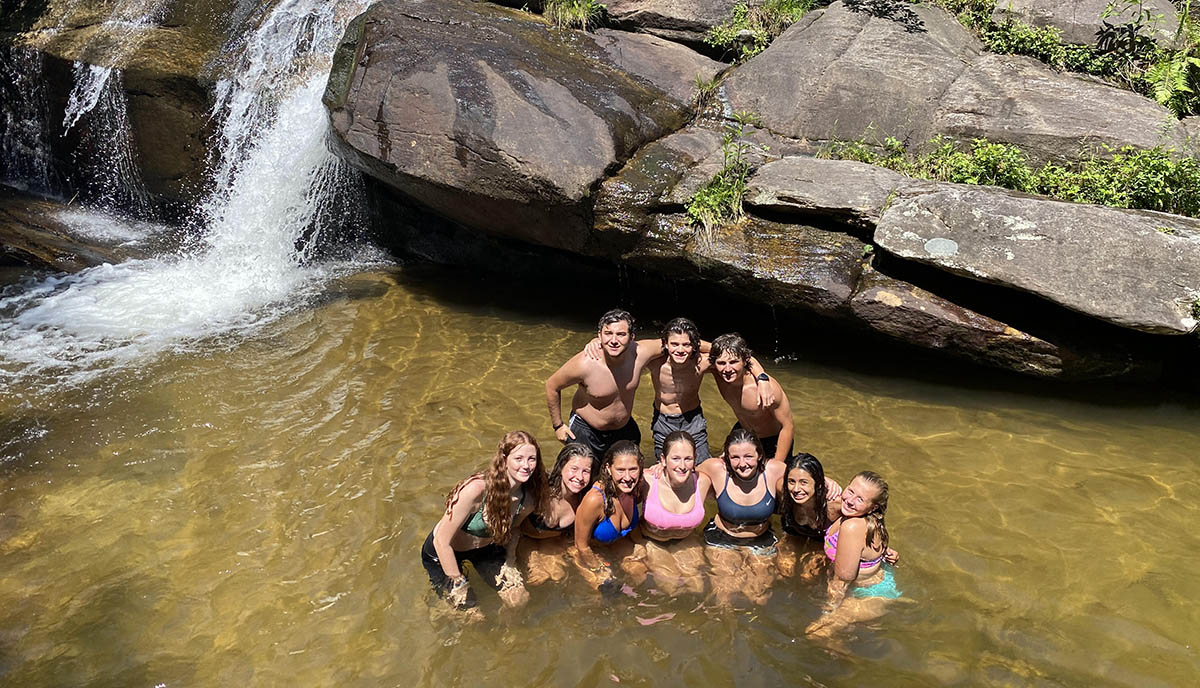
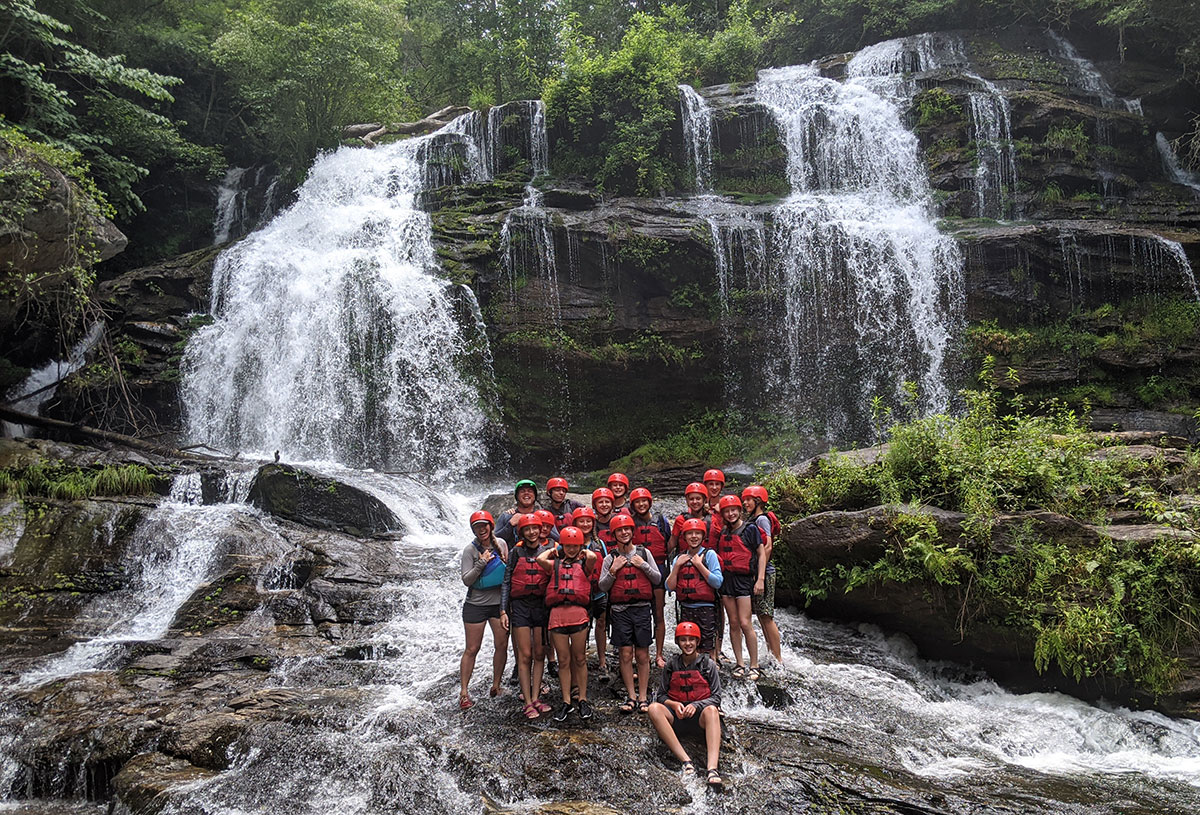
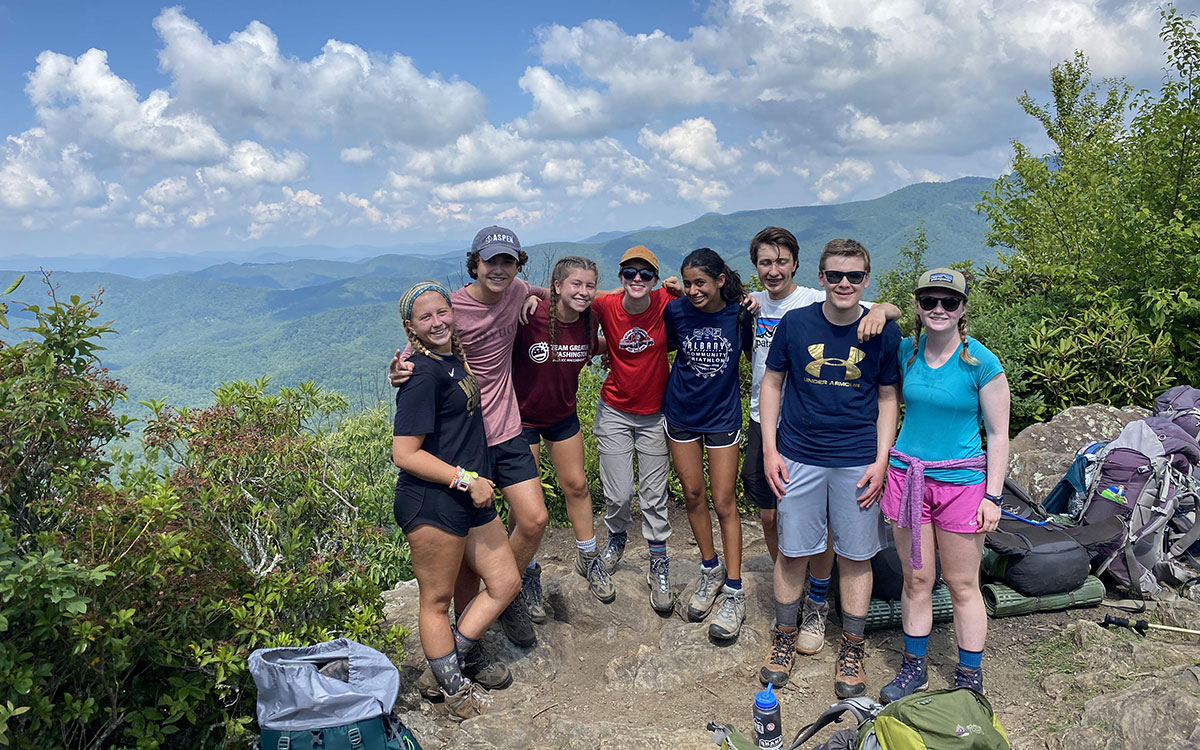
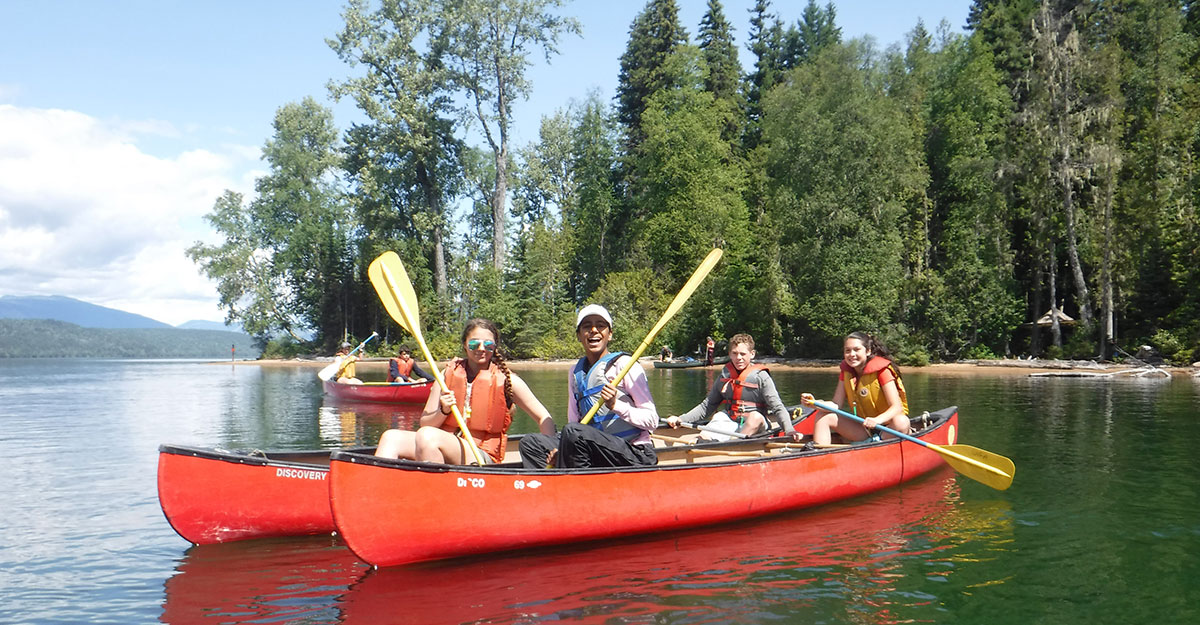
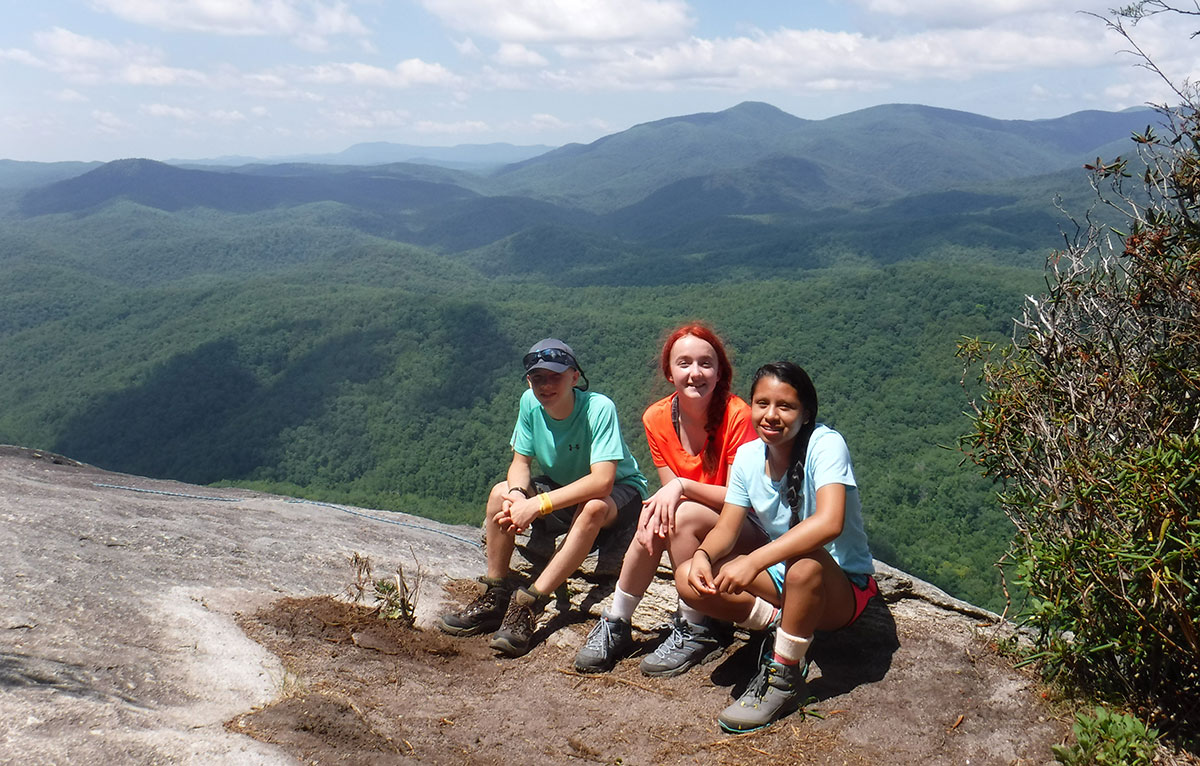
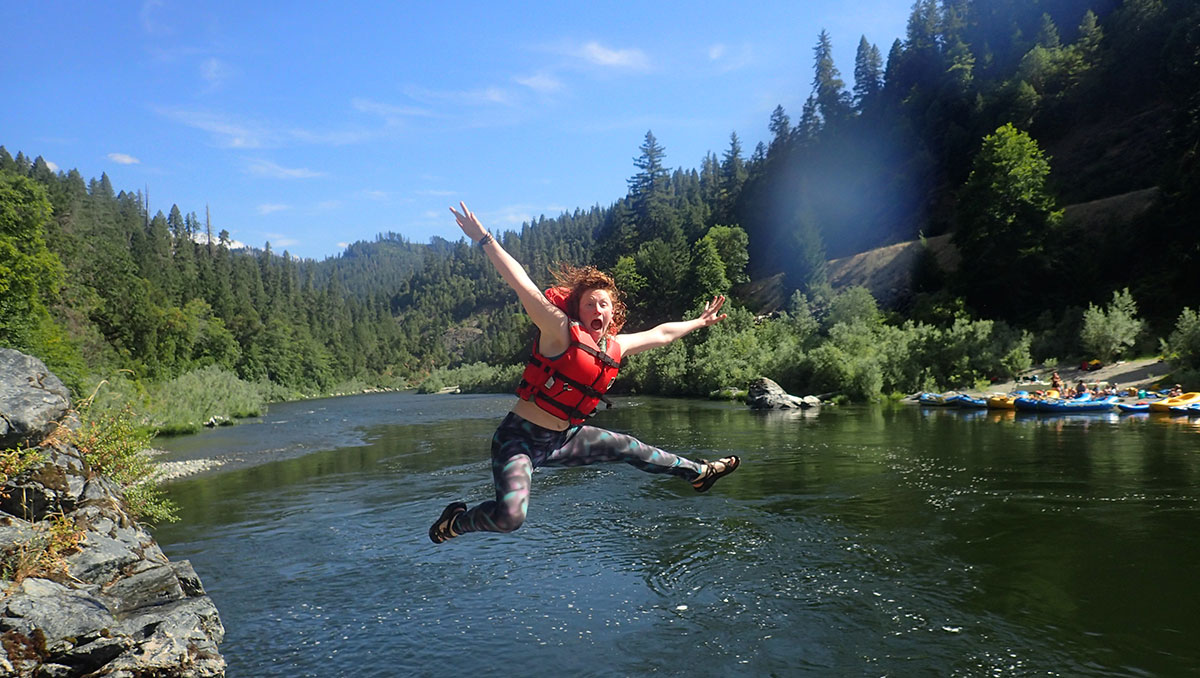
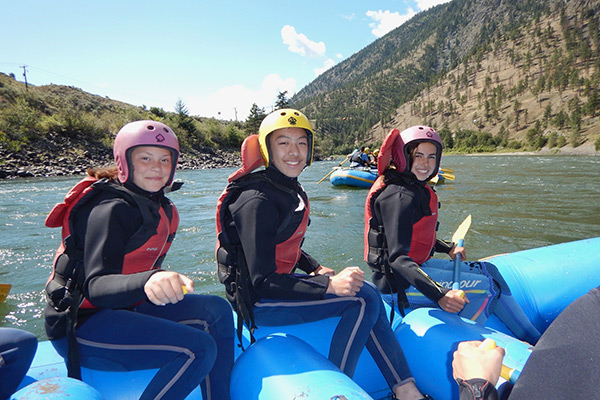 The decision to open Adventure Treks this season has been the hardest one we’ve made in our almost 30 years of working in youth development. The decision was made after many sleepless nights trying to figure which option was the best… out of no perfect options. It’s a decision made not from hubris, but with clear eyes and the belief in our mission of Adventure Treks as an important educational institution. We feel a sense of duty to serve our families when kids need community and outdoors the most.
The decision to open Adventure Treks this season has been the hardest one we’ve made in our almost 30 years of working in youth development. The decision was made after many sleepless nights trying to figure which option was the best… out of no perfect options. It’s a decision made not from hubris, but with clear eyes and the belief in our mission of Adventure Treks as an important educational institution. We feel a sense of duty to serve our families when kids need community and outdoors the most.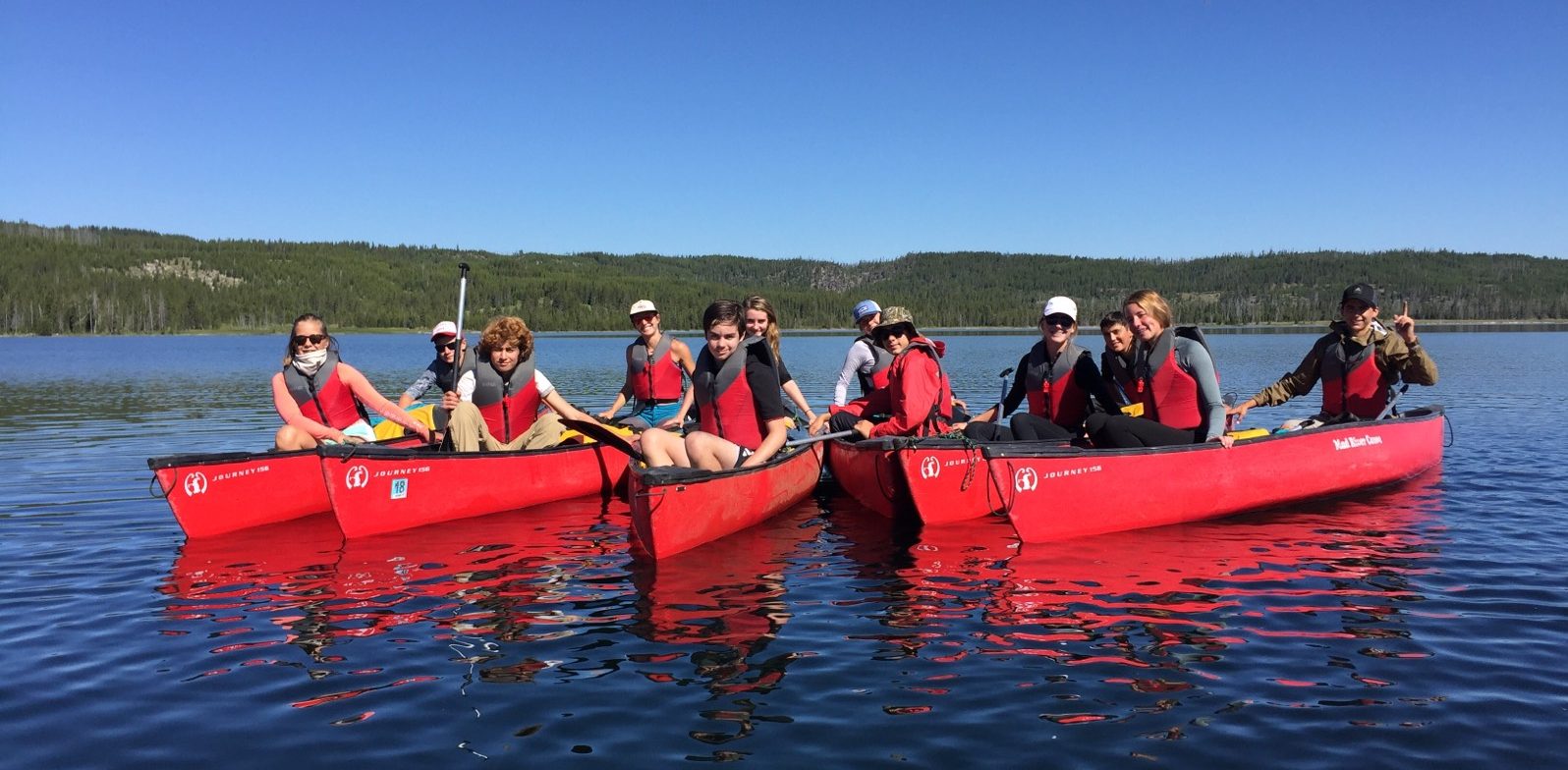 How can we run Adventure Treks safely?
How can we run Adventure Treks safely?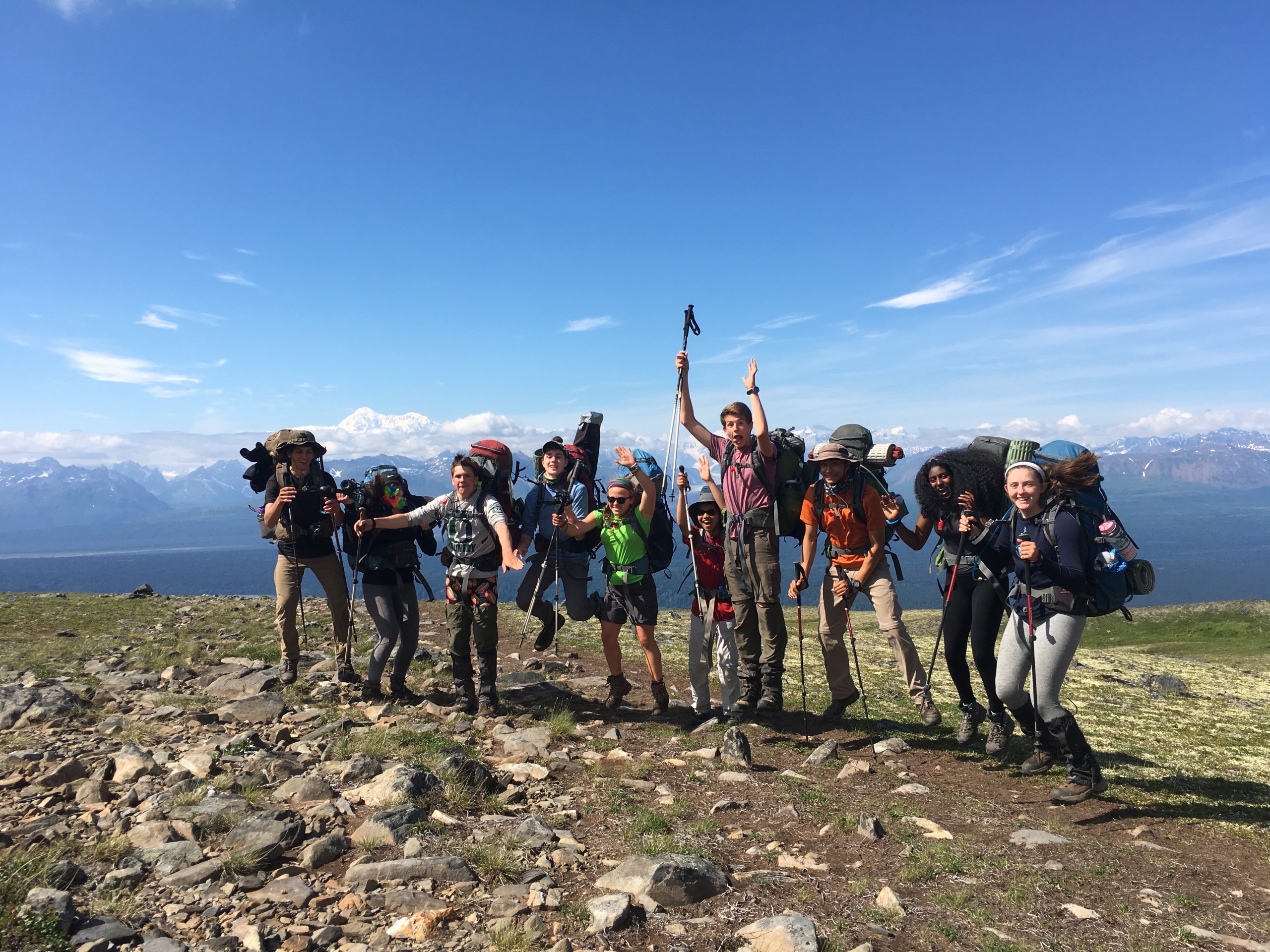 After all this… we realized that we can meet those guidelines, and of any program we can think of , it won’t be that hard to make Adventure Treks still feel like Adventure Treks. Only the scenery (and the humidity) will change, as we will only be operating in the Blue Ridge Mountains of North Carolina.
After all this… we realized that we can meet those guidelines, and of any program we can think of , it won’t be that hard to make Adventure Treks still feel like Adventure Treks. Only the scenery (and the humidity) will change, as we will only be operating in the Blue Ridge Mountains of North Carolina.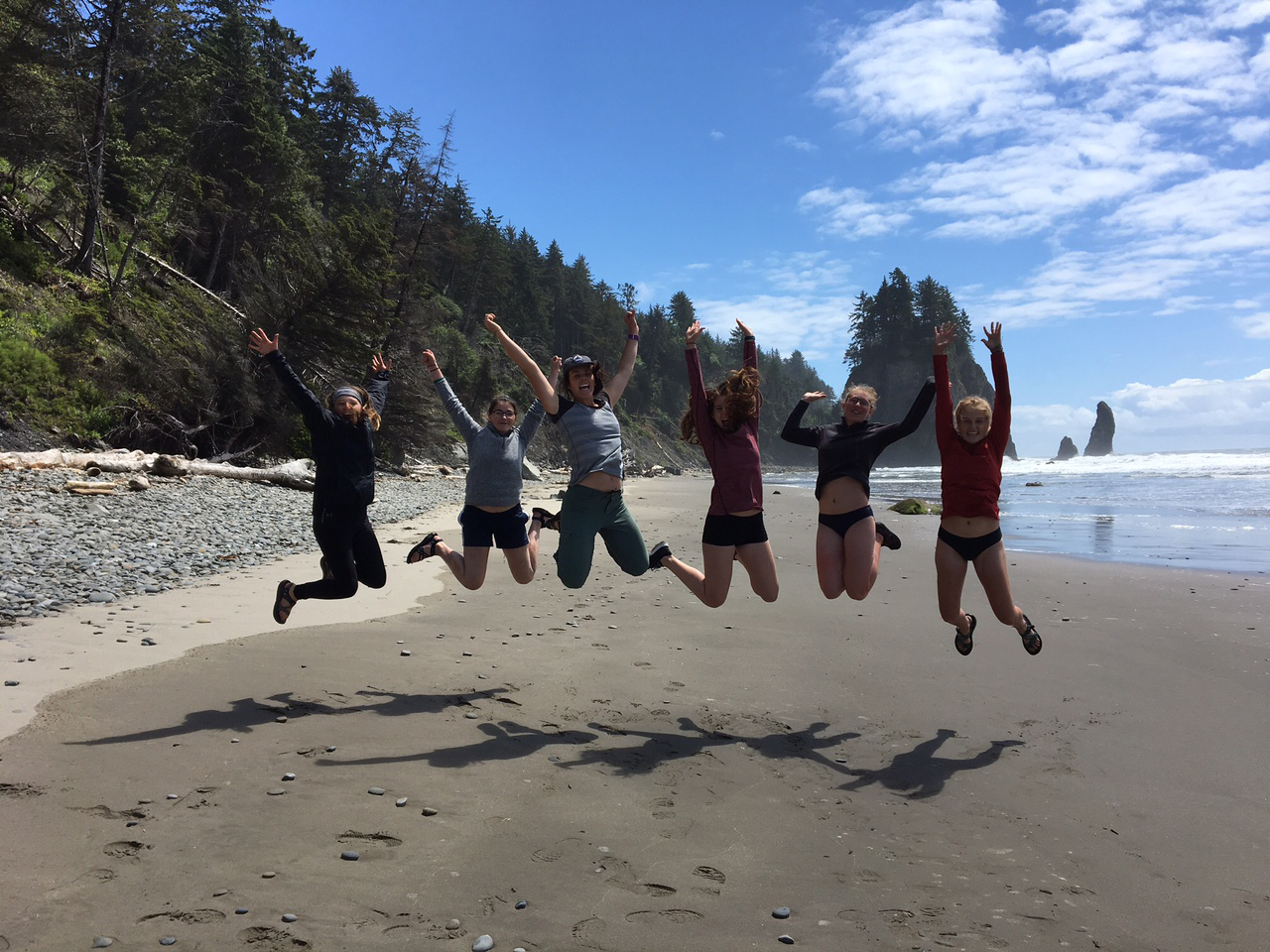 We know life isn’t returning to normal anytime soon; we don’t even know what’s going to happen with schools this fall. It’s very possible we could be facing this same decision about opening AT in 2021… if we don’t take the initiative now to figure it out.
We know life isn’t returning to normal anytime soon; we don’t even know what’s going to happen with schools this fall. It’s very possible we could be facing this same decision about opening AT in 2021… if we don’t take the initiative now to figure it out.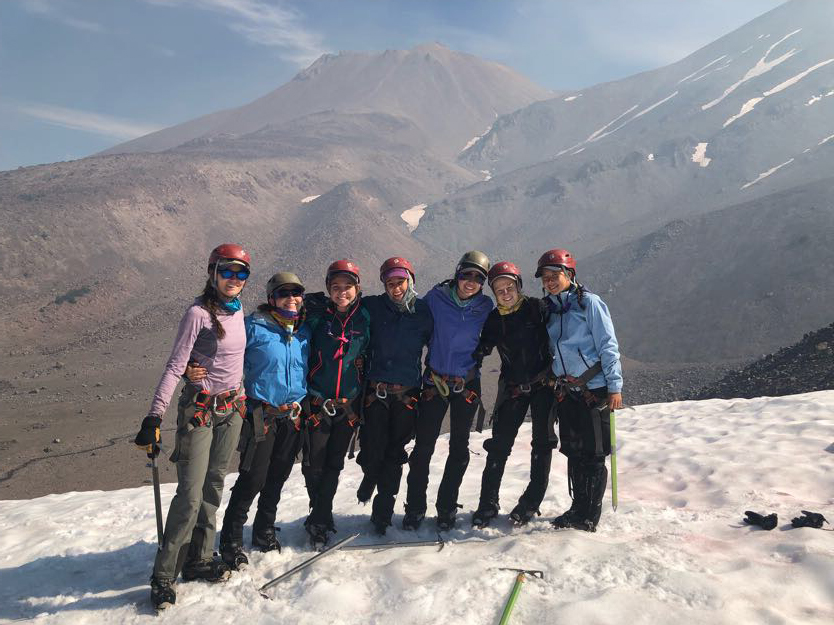 We are moving ahead carefully. We are well-connected within the camp and outdoor industry. Many traditional summer camps in the South will open an entire month earlier than us, so we’ll watch them carefully to learn from their successes and failures. If at any time we feel that the risks become too great, we will change our decision. We are also continuing to watch the outside world and data from the state of North Carolina. We hope to be in phase three with fewer restrictions when AT opens. Should numbers in NC take a turn for the worse in the month ahead, that may affect how we move forward.
We are moving ahead carefully. We are well-connected within the camp and outdoor industry. Many traditional summer camps in the South will open an entire month earlier than us, so we’ll watch them carefully to learn from their successes and failures. If at any time we feel that the risks become too great, we will change our decision. We are also continuing to watch the outside world and data from the state of North Carolina. We hope to be in phase three with fewer restrictions when AT opens. Should numbers in NC take a turn for the worse in the month ahead, that may affect how we move forward.

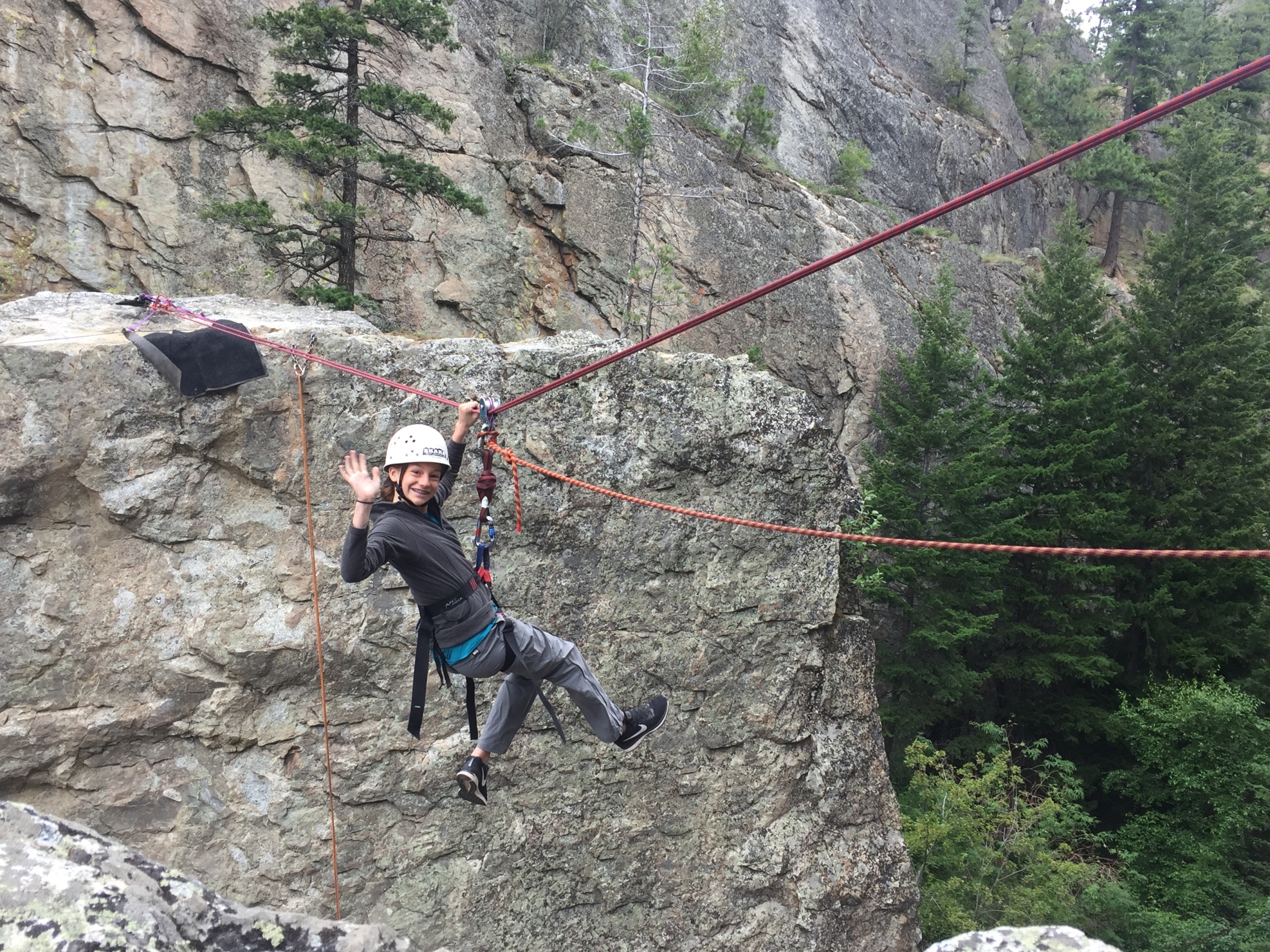
 Being an Adventure Treks instructor for the last seven years has taught me many things. I’ve learned to be more confident, believe in myself, and how to make any situation fun. I’ve also learned that it’s OK to show some vulnerability, that conflict is a healthy thing, and that giving a genuine compliment feels better than receiving one. Adventure Treks has helped me become more of the person I want to be, but there’s one thing I’m really thankful for: how to make friends.
Being an Adventure Treks instructor for the last seven years has taught me many things. I’ve learned to be more confident, believe in myself, and how to make any situation fun. I’ve also learned that it’s OK to show some vulnerability, that conflict is a healthy thing, and that giving a genuine compliment feels better than receiving one. Adventure Treks has helped me become more of the person I want to be, but there’s one thing I’m really thankful for: how to make friends.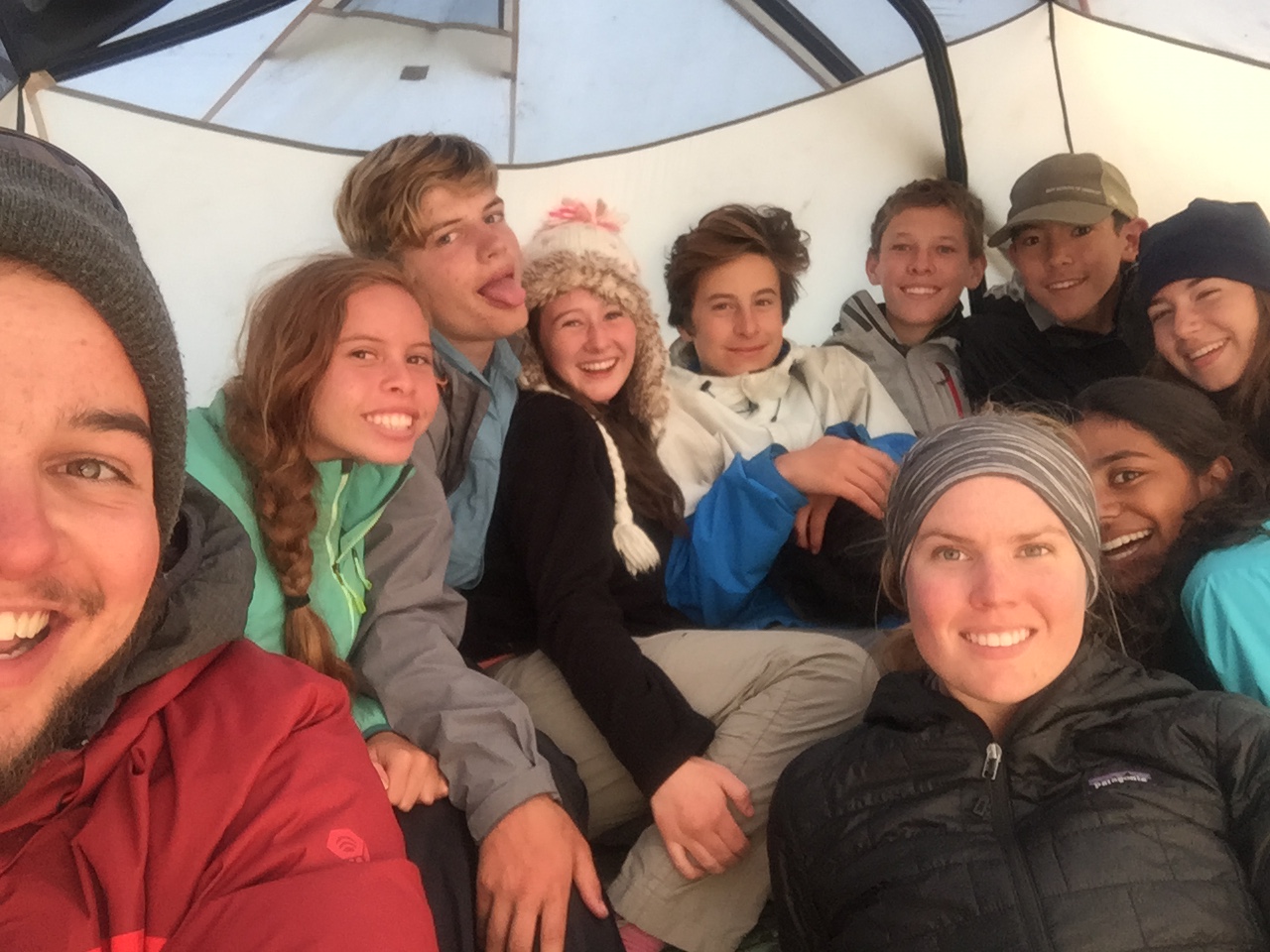 This one is the simplest, yet may be the hardest skill to execute. Adventure Treks instructor orientation is an intimidating social scene at first. You walk into a group of roughly 60 people and often do not know more than one other person there. For years, I had to put myself out there. I introduced myself to everyone. I said “Hi, I’m Joe” too many times to count. Fast forward: I have now introduced myself to literally hundreds of AT instructors. It actually does feel simple now. Like anything else, it takes practice, but you cannot make a friend until you know his or her name. Adventure Treks has helped me build the confidence to introduce myself to anyone, and now I take pride in making the first move.
This one is the simplest, yet may be the hardest skill to execute. Adventure Treks instructor orientation is an intimidating social scene at first. You walk into a group of roughly 60 people and often do not know more than one other person there. For years, I had to put myself out there. I introduced myself to everyone. I said “Hi, I’m Joe” too many times to count. Fast forward: I have now introduced myself to literally hundreds of AT instructors. It actually does feel simple now. Like anything else, it takes practice, but you cannot make a friend until you know his or her name. Adventure Treks has helped me build the confidence to introduce myself to anyone, and now I take pride in making the first move.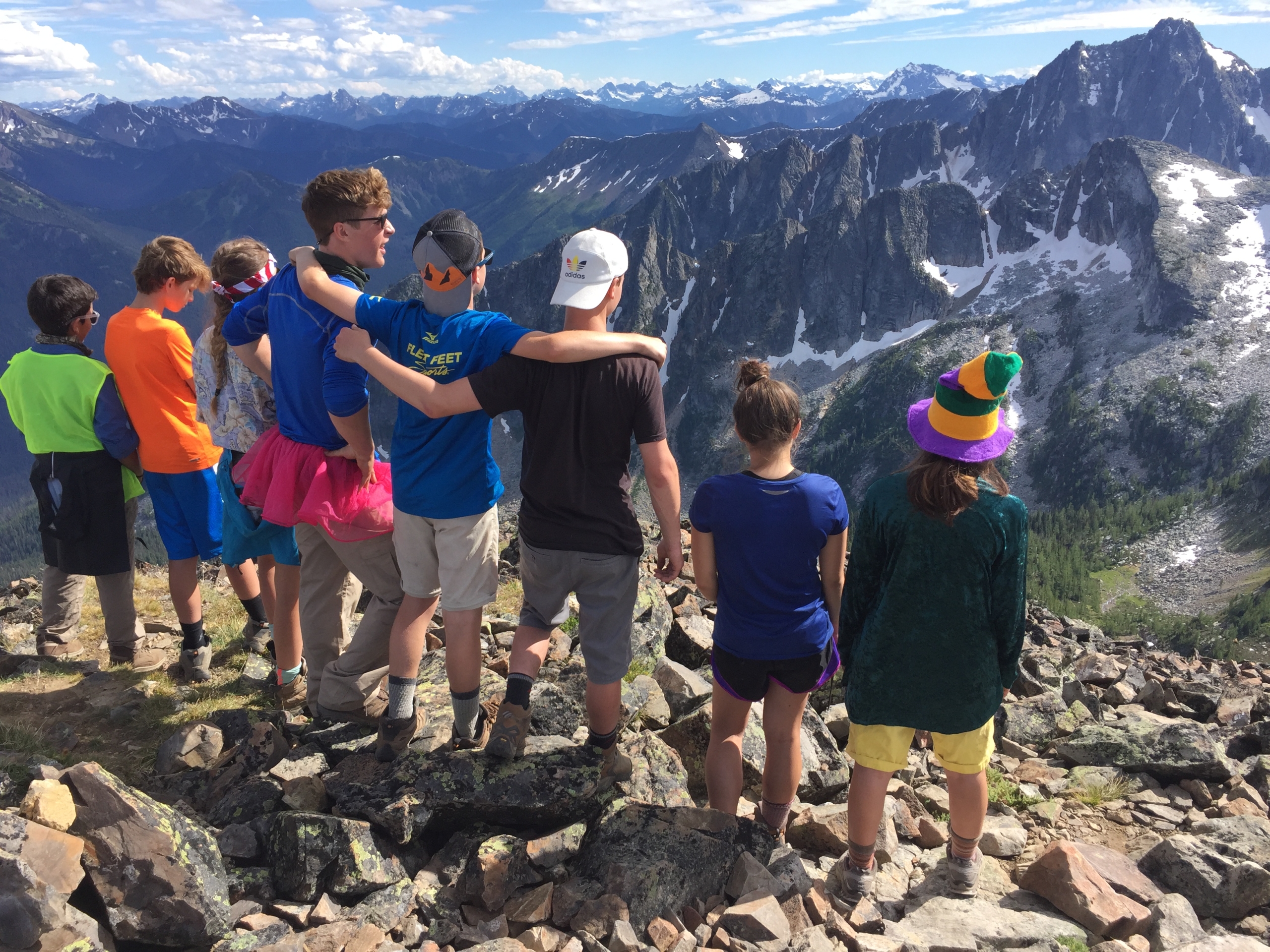 Someone once said “everyone’s favorite topic of conversation is themselves.” I won’t take credit for it, but it has been an invaluable lesson in building relationships. While working for Adventure Treks, a huge part of the job (and probably the most important next to maintaining safety) is building relationships. So after I introduce myself to students and find a few things we have in common, I try to learn about the new person in my life. I try to cover all the bases, like favorites of all categories: food, movies, books, video games, sports, classes in school, music, and television shows. Then I ask about their families and siblings: what their parents do, if they have pets, how they spend time together, etc. As we build our relationship, I may ask what they want their future to look like, or who are people who have really impacted their lives, or what their greatest fear is. The key to all of this is listen and remember. If you spend all of your time asking questions but cannot recall any of the answers, you have no credibility as a new friend.
Someone once said “everyone’s favorite topic of conversation is themselves.” I won’t take credit for it, but it has been an invaluable lesson in building relationships. While working for Adventure Treks, a huge part of the job (and probably the most important next to maintaining safety) is building relationships. So after I introduce myself to students and find a few things we have in common, I try to learn about the new person in my life. I try to cover all the bases, like favorites of all categories: food, movies, books, video games, sports, classes in school, music, and television shows. Then I ask about their families and siblings: what their parents do, if they have pets, how they spend time together, etc. As we build our relationship, I may ask what they want their future to look like, or who are people who have really impacted their lives, or what their greatest fear is. The key to all of this is listen and remember. If you spend all of your time asking questions but cannot recall any of the answers, you have no credibility as a new friend. Friends are not made instantly. What I would give to have the instant friendship of every student and co-instructor! A few years ago, I moved to a new town to work at a ski resort. I didn’t know anyone in town, and the thought of making new friends felt pretty overwhelming. I tried to think about my new job as one of my AT trips. I made sure to introduce myself to everyone I met, and that helped me feel a little more at ease. It’s a bit like ripping off a Band-Aid—if you just get on with it, it feels better. I found my commonalities (we all liked to ski), I did my best to learn about everyone, and then came the scary part: I was myself around everyone. I’ll admit that I may have scared some prospects off with that last part, but it felt right to be myself. Then I moved into step 5: I asked folks to hang out… All the time. I did not let “I can’t that day” or the “I’d love to, but I have plans” slow me down. I went back to that mountain for my fourth winter, and I truly felt like a part of the community. Our communities on our AT trips do not happen overnight, but by the end they are strong, healthy, and meaningful. AT time is kind of like dog years: One AT summer counts for seven years of regular friendship. So if you’re looking to make a new friend, stick with it, and let it play out, and I bet it will all work out in the end.
Friends are not made instantly. What I would give to have the instant friendship of every student and co-instructor! A few years ago, I moved to a new town to work at a ski resort. I didn’t know anyone in town, and the thought of making new friends felt pretty overwhelming. I tried to think about my new job as one of my AT trips. I made sure to introduce myself to everyone I met, and that helped me feel a little more at ease. It’s a bit like ripping off a Band-Aid—if you just get on with it, it feels better. I found my commonalities (we all liked to ski), I did my best to learn about everyone, and then came the scary part: I was myself around everyone. I’ll admit that I may have scared some prospects off with that last part, but it felt right to be myself. Then I moved into step 5: I asked folks to hang out… All the time. I did not let “I can’t that day” or the “I’d love to, but I have plans” slow me down. I went back to that mountain for my fourth winter, and I truly felt like a part of the community. Our communities on our AT trips do not happen overnight, but by the end they are strong, healthy, and meaningful. AT time is kind of like dog years: One AT summer counts for seven years of regular friendship. So if you’re looking to make a new friend, stick with it, and let it play out, and I bet it will all work out in the end.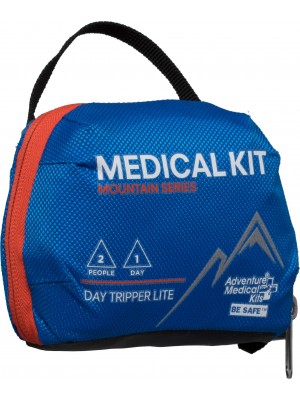 Either way, there are some important questions to ask. Be sure to consider the following:
Either way, there are some important questions to ask. Be sure to consider the following: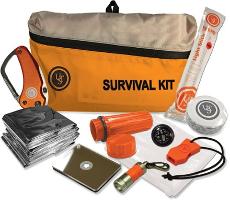
 Breakfast Burritos
Breakfast Burritos Chicken Caesar Wrap
Chicken Caesar Wrap Teriyaki Stir Fry
Teriyaki Stir Fry GORP
GORP Worms In Dirt
Worms In Dirt